Search Results
Showing results 761 to 780 of 823
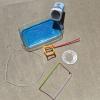
Burst a Bubble
Source Institutions
In this activity, learners will create their own bubble solution. Learners will explore chemistry, geometry and trial and error through this activity.
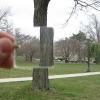
Gelatin Prism
Source Institutions
In this activity, learners make prisms from gelatin. Learners then shine light through the prisms and discover what happens. This activity introduces learners to the idea of refraction.
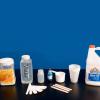
Slime
Source Institutions
Learners make slime from white school glue and Borax detergent. The long chain molecules of the white glue become cross-linked by the Borax into a big network.
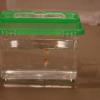
Fish Features and Habitats
Source Institutions
In this activity, learners observe live fish in tanks to consider how their body structures are related to their behaviors and habitats.
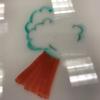
Floating Dry Erase Creations
Source Institutions
In this activity, learners will create a drawing with dry erase markers and watch it come to life. Learners will explore chemistry, art and storytelling through this activity.
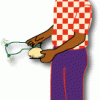
Fruity Electricity
Source Institutions
In this activity, Frankenstein's lab is running out of electricity! Learners use fruit to help Igor find a temporary source of energy to turn on a light.
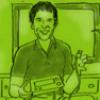
Electric Highway
Source Institutions
In this design challenge activity, learners design and build a circuit: an "electric highway" that connects a battery and buzzer at least three feet apart using four types of materials.
Mix and Match
Source Institutions
In this optics activity, learners explore color by examining color dots through colored water and the light of a flashlight.
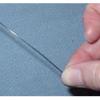
What Smart Metal!
Source Institutions
In this activity (pages 3-4), learners investigate the properties of smart materials, which are materials that respond to things that happen around them.
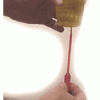
Single Serving Volcanism
Source Institutions
In this activity, learners eat a snack and make a model of the plumbing system of a volcano.
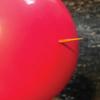
The Unpoppable Balloon
Source Institutions
In this activity, learners explore polymer structure and their ability to reform around objects by attempting to stab a wooden skewer through a balloon without popping it.
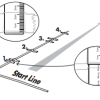
Stride Ruler
Source Institutions
In this activity, learners use their feet to estimate distances. Learners calculate the distance of one step in centimeters by measuring 10 steps at a time to reduce measurement error.
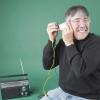
Cup Speaker
Source Institutions
Make your own speaker with a magnet, wire, and paper cup! If you have a radio with a headphone plug and an old pair of headphones, this is a great tinkering activity.
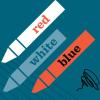
The Stroop Effect
Source Institutions
In this activity, learners experiment with the Stroop Effect by challenging themselves and others to try and read a list of colors as quickly and accurately as possible, with a twist.
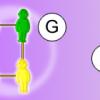
Yummy Gummy Double Helix
Source Institutions
In this activity, learners make their own edible DNA double helix out of candy and find out about the shape of DNA.
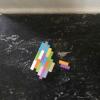
Brick Drop Challenge
Source Institutions
In this design challenge, leaners attempt to build a strong structure out of LEGO® bricks that can withstand a 4-foot drop.
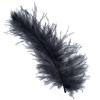
Falling Feather
Source Institutions
In this physics activity, learners recreate Galileo's famous experiment, in which he dropped a heavy weight and a light weight from the top of the Leaning Tower of Pisa to show that both weights fall
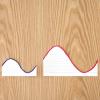
Soap-Film Interference Model: Get on our wavelength!
Source Institutions
By making models of light waves with paper, learners can understand why different colors appear in bubbles.
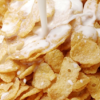
Iron for Breakfast
Source Institutions
Did you know that some breakfast cereals are fortified with ferric phosphate, while others contain tiny pieces of reduced iron?

Can I Get Some Pi?
Source Institutions
In this activity, learners will explore pi and the mathematical relationships between a circle's diameter, circumference, and radius.
